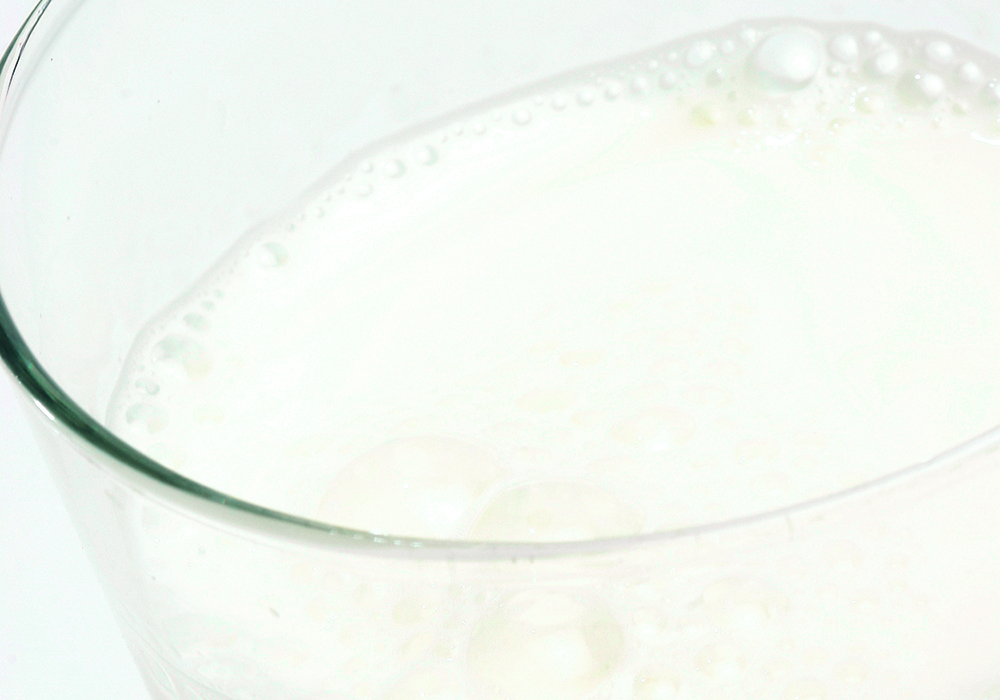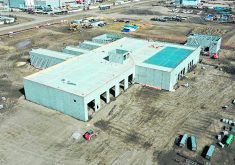The plant at Blackfalds near Red Deer will help reduce producers’ transportation costs and serve processors
Work is finally underway on a 300-million-litre milk processing facility at Blackfalds, Alta., that is expected to save dairy farmers significant transportation costs.
The $67-million Dairy Innovation West de-watering plant, the first of its kind in Canada, was announced in 2019 and supposed to be open by 2021. However, chair Henry Holtmann, a Manitoba dairy producer, said it took longer than expected to work out the details.
The plant is co-owned by five western milk marketing boards that are members of the Western Milk Pool: Dairy Farmers of Manitoba, Sask Milk, Alberta Milk, B.C. Milk and B.C. Dairy.
Read Also

Phosphate prices to remain high
Phosphate prices are expected to remain elevated, according to Mosaic’s president.
“The biggest challenge for us — well, COVID was one of them eventually — was really four jurisdictions’ regulations,” said Holtmann. “Once we got into it, we found there could be a lot of barriers or little restrictions among the provinces.”
For example, British Columbia regulations did not allow dairy farmers to own something outside of provincial boundaries.
Holtmann said a solution was found through the B.C. Dairy industry Development Council.
The Western Milk Pool couldn’t build the plant because it exists to pool revenues and costs and is not a legal entity on its own, he said.
Dairy farmers pay the full cost of transporting their milk to processors. Holtmann said farmers wanted to support processor expansion in Western Canada but also to save transportation costs.
“We do have excess milk produced in Alberta, but not enough processing in Alberta,” he said.
In some cases, producers near Red Deer are shipping milk to Abbotsford, B.C. Attempts to attract new processing weren’t successful, but Dairy Innovation West could support expansions at existing facilities.
DIW will concentrate raw milk through ultrafiltration and reverse osmosis, which will reduce the trucks required by one-half to one-quarter.
Holtmann said ultrafiltration concentrates the proteins while reverse osmosis takes out water. Processors will use their own milk allocations to decide if they want their raw milk to go to Dairy Innovation West and which processes it will undergo.
In any event, transportation costs will be lower.
“It they just want the water removed, we can reduce the number of trucks by 50 percent,” he said.
Concentrates will require only 25 percent of the trucks currently used.
Customers include larger processors right down to smaller cheese, yogurt and butter makers.
Holtmann said in addition to saving money, the effort is more environmentally friendly because less carbon will be emitted.
The water from Dairy Innovation West processes goes through another process called polishing. It’s then used to wash membranes and is reused twice before it goes into effluent discharge, he said.
“The other component is that if a permeate is created out of the ultrafiltration process, then that permeate will go to possibly a livestock farm, whether it be a hog farm or a dairy farm, to be fed, or even a digester for that matter,” he said.
Ethanol production may even be possible in the future, he added.
An initial $50-million cost estimate was bumped to the current $67 million after the design was completed.
Groundwork is underway on the site now.
“We’ve got financing in place and the tenders are going out,” Holtmann said.
Dairy Innovation West is expected to open in the first or second quarter of 2025.
Holtmann said the plant suits the vision of regional co-operation and efficiency.
















